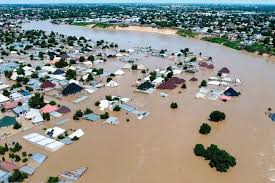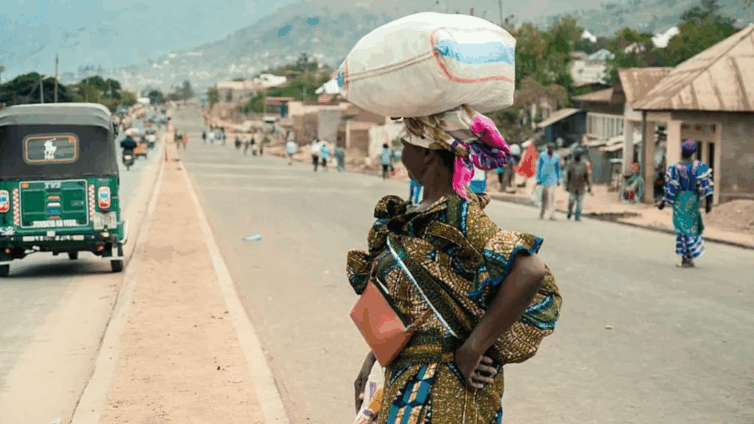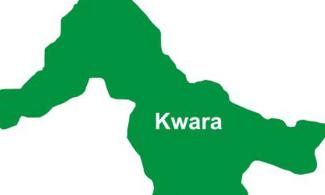Nigeria Reels From 2025 Floods: NEMA Confirms Over 230 Dead, Hundreds of Thousands Displaced

The National Emergency Management Agency (NEMA) has reported a significant humanitarian crisis in Nigeria due to widespread flooding this year. Confirmed data from NEMA indicates that 231 persons have died, while 607 individuals sustained injuries. A staggering 315,762 people have been affected across 25 states. The agency also reported that 114 persons are currently missing as a direct consequence of the floods.
The devastating impact of the floods extends to widespread displacement and destruction. NEMA's updated 2025 flood dashboard, released recently, shows that 113,367 persons have been displaced from their homes.
Furthermore, 40,493 houses have been destroyed, and 46,304 farmlands have been washed away, severely impacting livelihoods and food security. The floods have impacted a total of 86 local government areas (LGAs) within the 25 affected states.
Among the 25 affected states, 10 were identified as most severely impacted. These include Lagos with 52,013 affected persons, Adamawa with 51,713, Akwa Ibom with 46,233, Imo with 29,242, Taraba with 26,722, Rivers with 22,345, Delta with 14,057, Abia with 11,907, Borno with 8,164, and Kaduna with 7,334.
A demographic breakdown of the affected population reveals that children are the most vulnerable group, with 143,683 children impacted. Following them are 100,079 women, 60,408 men, 11,592 elderly persons, and 2,265 persons with disabilities who have been affected by this year's flooding.
NEMA has also highlighted several key challenges in addressing the aftermath of these flood incidents. Resource shortage accounts for the largest hurdle at 69 percent, followed by inaccessibility at 16 percent.
Community resistance poses a challenge at 7 percent, and security risks represent 6 percent of the identified difficulties. In response to these pressing issues, the priority needs for the affected persons include food, shelter, WASH (Water, Sanitation, and Hygiene), health services, livelihood support, nutrition, education, protection, and security.
Recommended Articles
DR Congo Rebels Unleash Gunfire, Target Key City Despite Trump's Peace Deal

M23 rebels are advancing on Uvira in eastern DR Congo, displacing thousands and causing widespread chaos despite recent ...
Kwara Bloodbath Fallout: Vice President Shettima Deploys Troops After Terrorists Massacre Over 170 In Woro Attack

Kwara State has been rocked by devastating terrorist attacks in Woro and Nuku villages, claiming over 100 lives and spar...
Horror in Borno: Imam Recounts Worshippers Falling in Deadly Mosque Blast, Calls for Justice

A suicide bombing at the Gamboru Juma’at Mosque in Maiduguri, Borno State, left five worshippers dead and up to 40 injur...
Nigeria Faces Grave Public Health Crisis: Senate Declares Lead Contamination Emergency

The Nigerian Senate has issued a grave warning regarding a widespread lead-poisoning disaster in Ogijo, Nigeria, caused ...
You may also like...
Super Eagles Fury! Coach Eric Chelle Slammed Over Shocking $130K Salary Demand!
)
Super Eagles head coach Eric Chelle's demands for a $130,000 monthly salary and extensive benefits have ignited a major ...
Premier League Immortal! James Milner Shatters Appearance Record, Klopp Hails Legend!

Football icon James Milner has surpassed Gareth Barry's Premier League appearance record, making his 654th outing at age...
Starfleet Shockwave: Fans Missed Key Detail in 'Deep Space Nine' Icon's 'Starfleet Academy' Return!

Starfleet Academy's latest episode features the long-awaited return of Jake Sisko, honoring his legendary father, Captai...
Rhaenyra's Destiny: 'House of the Dragon' Hints at Shocking Game of Thrones Finale Twist!

The 'House of the Dragon' Season 3 teaser hints at a dark path for Rhaenyra, suggesting she may descend into madness. He...
Amidah Lateef Unveils Shocking Truth About Nigerian University Hostel Crisis!

Many university students are forced to live off-campus due to limited hostel spaces, facing daily commutes, financial bu...
African Development Soars: Eswatini Hails Ethiopia's Ambitious Mega Projects

The Kingdom of Eswatini has lauded Ethiopia's significant strides in large-scale development projects, particularly high...
West African Tensions Mount: Ghana Drags Togo to Arbitration Over Maritime Borders

Ghana has initiated international arbitration under UNCLOS to settle its long-standing maritime boundary dispute with To...
Indian AI Arena Ignites: Sarvam Unleashes Indus AI Chat App in Fierce Market Battle

Sarvam, an Indian AI startup, has launched its Indus chat app, powered by its 105-billion-parameter large language model...